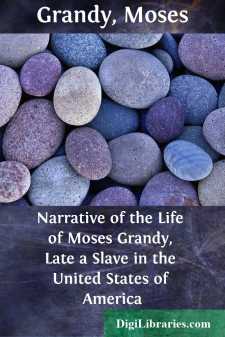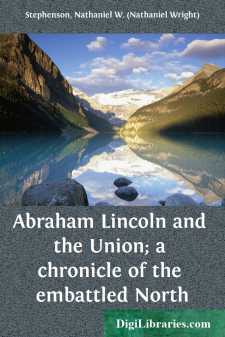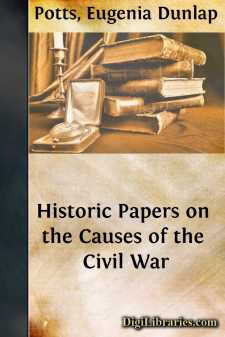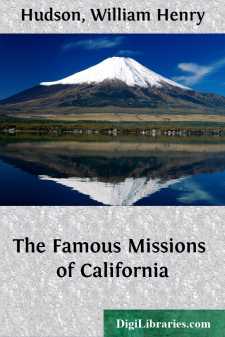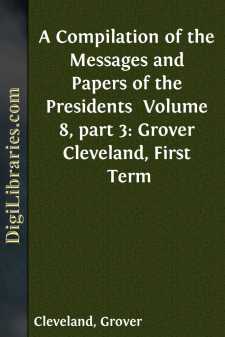History
- Africa 30
- Americas (North Central South West Indies) 50
- Ancient 68
- Asia 58
- Australia & New Zealand 8
- Canada 41
- Caribbean & West Indies 1
- Civilization 20
- Eastern Europe 12
- Europe 310
- Expeditions & Discoveries 60
- General 77
- Historical Geography 1
- Jewish 9
- Latin America 3
- Medieval 8
- Middle East 13
- Military 248
- Revolutionary 8
- Study & Teaching 5
- United States
- Western Europe 56
- World 13
United States Books
Sort by:
by:
John Tyler
To the Senate and House of Representatives of the United States: In coming together, fellow-citizens, to enter again upon the discharge of the duties with which the people have charged us severally, we find great occasion to rejoice in the general prosperity of the country. We are in the enjoyment of all the blessings of civil and religious liberty, with unexampled means of education, knowledge, and...
more...
by:
Moses Grandy
INTRODUCTION. About a fortnight ago, the subject of the following brief Memoir came to me, bearing with him a letter from a dear friend and distinguished abolitionist in the United States, from which the following is an extract:—'I seize my pen in haste to gratify a most worthy colored friend of mine, by giving him a letter of introduction to you, as he intends sailing this week (August 8th,...
more...
TO MY GRANDCHILDREN As the “New South,” with all its changes and improvements, rises above the horizon, those whose hearts still cling to the “Old South” look sadly backward and sigh to see it fade away into dimness, to be soon lost to sight and to live only in the memory of the few. Hoping to rescue from oblivion a few of the habits, thoughts, and feelings of the people who made our South what...
more...
OLIVER BELL BUNCE. (1828-1890) The name of Oliver Bell Bunce is not prominently connected with the American Theatre. Authorities have taken little or no trouble to unearth his association with the plays and players of his time—the mid-period of the nineteenth century. Yet they all agree that, as illustration of "parlour comedy," his "Love in '76" is a satisfactory example of...
more...
PREFACE In spite of a lapse of sixty years, the historian who attempts to portray the era of Lincoln is still faced with almost impossible demands and still confronted with arbitrary points of view. It is out of the question, in a book so brief as this must necessarily be, to meet all these demands or to alter these points of view. Interests that are purely local, events that did not with certainty...
more...
The Old South Read Before the Lexington Chapter U.D.C., February 14, 1909,By Eugenia Dunlap Potts, Historian. No pen or brush can picture life in the old Southern States in the ante-bellum days. The period comprehends two hundred and fifty years of history without a parallel. A separate and distinct civilization was there represented, the like of which can never be reproduced. Socially, intellectually,...
more...
I. On the 1st of July, 1769—a day forever memorable in the annals of California—a small party of men, worn out by the fatigues and hardships of their long and perilous journey from San Fernandez de Villicatà, came in sight of the beautiful Bay of San Diego. They formed the last division of a tripartite expedition which had for its object the political and spiritual conquest of the great Northwest...
more...
Mr. Speaker, Mr. President, members of the 103rd Congress, my fellowAmericans: I am not sure what speech is in the TelePrompTer tonight, but I hope we can talk about the State of the Union. I ask you to begin by recalling the memory of the giant who presided over this chamber with such force and grace. Tip O'Neill liked to call himself "A Man of the House" and he surely was that. But even...
more...
by:
Jimmy Carter
Two years ago today we had the first caucus in Iowa, and one year agotomorrow, I walked from here to the White House to take up the duties ofPresident of the United States. I didn't know it then when I walked, butI've been trying to save energy ever since. I return tonight to fulfill one of those duties of the Constitution: to give to the Congress, and to the Nation, information on the state...
more...
by:
Grover Cleveland
Grover Cleveland Grover Cleveland was born in Caldwell, Essex County, N.J., March 18, 1837. On the paternal side he is of English origin. Moses Cleveland emigrated from Ipswich, County of Suffolk, England, in 1635, and settled at Woburn, Mass., where he died in 1701. His descendant William Cleveland was a silversmith and watchmaker at Norwich, Conn. Richard Falley Cleveland, son of the latter named,...
more...



